

The Friday night before election day, Zohran Mamdani, the 33-year-old democratic socialist running for mayor of New York City, walked the length of Manhattan, from Inwood Hill Park at its northern tip to the Battery – about 13 miles. Along the way, he was greeted by a stream of New Yorkers enjoying the sticky summer night – men rose from their folding chairs to shake his hand, drivers honked in support and diners leapt up to snap a selfie with the would-be leader of their city.
A feelgood video of his trek, produced by Mamdani’s campaign, captures the “only in New York” quality of his ascendance, from little-known assembly member to the all-but-official Democratic nominee for mayor of America’s largest city.
His stunning political upset, triumphing over the better-financed, establishment-backed former governor, Andrew Cuomo, who conceded the race on Tuesday night with only the first round of votes counted, carries what many Democrats hope is an unmistakable message to their party’s old guard: it’s time to pass the torch.

Mamdani himself said he viewed the election as a referendum on a crumbling status quo. In his election party speech, delivered in the first minutes of Wednesday morning, he vowed “to govern our city as a model for the Democratic party – a party where we fight for working people with no apology”.
With a relentless focus on the cost of living, a relatable online presence and an army of volunteers tens of thousands strong, Mamdani – who would be the first Muslim mayor in the city’s history – defied conventional wisdom that said Cuomo – the 67-year-old scion of a prominent New York political family with a massive war chest – was invincible. And he did it in a way that many Democrats from across the ideological spectrum believe might offer a roadmap for winning back the voters they have lost touch with, in the first major primary election since Donald Trump reclaimed the White House.
“The establishment, at this point, is suicidally clinging to a version of power it no longer even has,” said Amit Singh Bagga, a Democratic strategist and former New York City official. “We have made this choice to not evolve – and if you do not evolve, you will walk your party – and potentially our democracy – up to the brink of extinction.”
Early data suggests Mamdani’s youth-powered campaign stitched together a new multiracial coalition, activating disengaged voters across the five boroughs, particularly in predominantly Asian and Hispanic districts. He won big in Ridgewood, Queens (where he notched 80% of the vote), and in nearby Bushwick, Brooklyn (79%) – the kinds of gentrifying neighborhoods where his younger fanbase lives. On election night, popular bars projected the results to amped-up patrons as if it were their Super Bowl. (The New York Times called this area “the Commie Corridor”, to the delight of the neighborhood’s out-and-proud leftists.) Even residents of the financial district – the symbolic heart of American capitalism – voted for the democratic socialist.
Speaking at a thinktank in Washington on Thursday, Democratic senator Elissa Slotkin, a relative moderate who represents battleground state Michigan and is viewed as a rising star in the party, said New Yorkers made two demands crystal clear.
“People, just like in November, are still really focused on costs and the economy and their own kitchen-table math – and they’re looking for a new generation of leadership,” she said. Of Mamdani’s campaign, Slotkin added: “We may disagree on some key issues but understanding that people are concerned about their family budget – that is a unifying thing for our coalition.”
Yet other corners of the party were raising alarms, warning that Mamdani’s populist economic policies and pro-Palestinian views placed him beyond the pale of swing-voter consensus. “What can work in Brooklyn is not the path for the battlegrounds,” said Kate deGruyter, communications director at the centrist Democratic thinktank Third Way. “And I think we need to be really clear about that.”
Whether the Democratic establishment ultimately decides to embrace Mamdani before the November general election may provide a clue as to its future.
Polls and focus groups make clear that voters view Democrats as elitist and out of touch. In 2024, voters said Kamala Harris came across as overly scripted in her presidential campaign, especially compared with Trump’s free-wheeling approach.
“You’ve got to let the candidate be themselves,” said Debbie Saslaw, co-founder of Melted Solids, the Brooklyn-based production studio that crafted some of Mamdani’s most viral videos. Saslow and co-founder Anthony Dimieri said their work looked to amplify Mamdani’s authenticity.
He spoke about “halal-inflation” in front of food trucks and cut campaign videos in English and Spanish. In others, he explained the city’s ranked-choice voting system in Hindi and Urdu – and likened Cuomo to a “Bollywood villain”.
“[Mamdani] spoke the language of all New Yorkers, because people don’t want to be pandered to,” she said. “A meme only speaks to people who are extremely online. Our priority was going all around New York City and speaking to hundreds of people about the issues.”
In 2024, the Harris campaign raised an eye-watering billion dollars, but many Democrats now believe a too-cautious media strategy cost her dearly.
Mamdani – who once tried to launch a rap career under the name Mr Cardamom – had no hestitation talking to everyone. He appeared on just about any media platform that would have him – from popular TikTok shows like Subway Takes, where host Kareem Rahma discusses current events while riding the train, and Gaydar, where a comedian named Anania cheekily tries to guess if someone is “gay, straight or a homophobe” while quizzing them on queer history. He spoke to more mainstream and moderate audiences on The Late Show with Stephen Colbert and The Bulwark, a never-Trump conservative news website.
“Mamdani clearly understands the value of our platform,” said Amelia Montooth, a 28-year-old New Yorker and CEO of Mutuals Media, who produces Gaydar. “I was in awe of the fact that they said yes to appearing on the show right away, and they didn’t try to change anything about the show or edit us.”
Mamdani’s flood-the-zone, “go everywhere” approach proved popular, especially when he was asked, and sometimes cornered, in debates and discussions about his views on Israel, a topic long viewed as crucial for electability in New York. Both Cuomo and conservatives continued to try to paint Mamdani’s rhetoric, including an explanation of the controversial phrase “globalize the intifada”, as antisemitic.
But in a sign that times may have changed, Mamdani’s pro-Palestinian views did not prevent his decisive victory – nor were they central to his campaign. Instead, he kept a laser-focus on affordability – with policy goals that included a rent freeze, free buses and universal childcare.
Groups like Hot Girls for Zohran staged canvassing parties, lookalike contests, and DJ nights at queer clubs in Brooklyn.
The duo behind Hot Girls for Zohran – Cait and Kaif, two gen-Z New Yorkers who keep their last names private for security reasons – said they ran the group as if it were a “marketing” campaign.
“We wanted it to be very accessible to people who normally aren’t politically active,” Cait said. “We brought them in with fun events, and then we got them to go canvas. We made it a cultural thing: you go with your friends to volunteer, and then you go party.”
Yet Mamdani’s victory has rattled the Democratic establishment, triggering a wave of panic that his politics will further alienate the voters they need to win back power in 2026 and 2028.
As the ranked-choice tabulations continue, business leaders and some major Democratic donors are debating whether to coalesce around an independent bid by Cuomo or to rally behind the city’s deeply unpopular incumbent mayor, Eric Adams, who is also running as an independent.
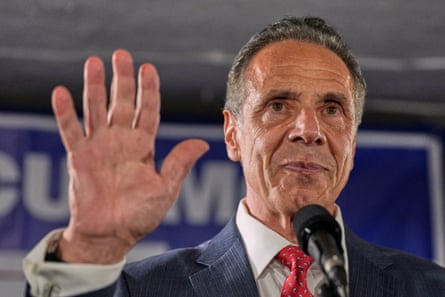
Lis Smith, a veteran Democratic strategist who previously worked for Cuomo but is now a critic, said many of the leading Democrats “freaking out” over Mamdani’s win had only themselves to blame.
“They looked around a city of more than 8 million people and said: ‘You know what, let’s nominate the guy who was run out of office 4 years ago,’” she observed on X in reference to Cuomo, who resigned as governor over multiple sexual assault allegations.
Mamdani has quickly pivoted to the general election, seeking to build moment from his powerful showing in the Democratic primary. But his path to City Hall – in a city where Democrats outnumber Republicans six to one – could be unusually competitive. Centrist Democrats could rally around Cuomo or Adams, who until recently was beset by corruption charges that were dropped by the Trump administration. The same goes for billionaires such as Bill Ackman, who promised to “take care of the fundraising” for a strong centrist challenger.
He also risks damage from a rightwing campaign that has already kicked into gear. Republicans gleefully seized on Mamdani’s success, seeking to make him the new face of the Democratic party, with some criticism veering into outright Islamophobia and bigotry. Trump assailed Mamdani as a “100% Communist Lunatic” who looks “terrible”, has a “grating voice” and is “not very smart”.
A mixed message from Democrats
The establishment has certainly felt the jolt of Mamdani’s political earthquake, as it did in 2018, when Alexandria Ocasio-Cortez toppled one of the highest-ranking House Democrats. Ocasio-Cortez, also of Queens, was one of Mamdani’s most prominent progressive supporters along with Senator Bernie Sanders.
So far, Mamdani has received a mixed reception from Democrats in New York and nationally. While progressives are elated, many centrist Democrats are alarmed by the ascension of a democratic socialist who previously called for defunding the police and is vocally pro-Palestine.
New York congressman Jerry Nadler, one of the city’s most prominent Jewish leaders, endorsed Mamdani after previously supporting one of his opponents. But Senator Chuck Schumer and Representative Hakeem Jeffries – both New Yorkers who lead the Senate and House Democrats – congratulated him without extending an endorsement. Others distanced themselves entirely.
Representative Laura Gillen, a first-term Democrat who flipped a Long Island House district last year, called Mamdani “the absolute wrong choice for New York”. Representative Tom Suozzi, another Long Island Democrat in a competitive district, said he had “serious concerns” about Mamdani before the election and “those concerns remain”.
The response has infuriated progressives. “Tell them what they love to tell us: vote blue no matter who,” declared David Hogg, the Florida activist who recently stepped down as a national party official after clashing with the leadership at the Democratic National Committee over his decision to support primary challenges against long-serving Democratic incumbents.
Bagga, the former city official, urged Democratic leaders to engage young political talent such as Mamdani – candidates who are resonating with the young and working-class voters that abandoned the party last year.
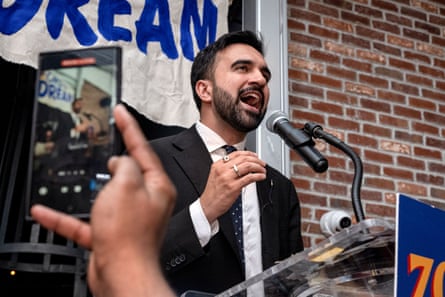
“We have to be able to not eat ourselves for lunch,” he said, “because the more we continue to do that, the Maga authoritarian right will eat us all for dinner”.
A wave of young Democrats running for office are taking hope from Mamdani’s campaign – validation that campaigns built on TikTok, door-knocking and a focus on bread-and-butter economic issues can shake even the most entrenched political machines.
In southern Arizona, 25-year-old Deja Foxx is running in a special election for a solidly blue seat held for most of her life by the congressman Raúl Grijalva, until he died in office in March. A reproductive rights activist and digital strategist, Foxx is hoping to channel the same desire for generational change that powered Mamdani’s political upset in New York.
Facing a competitive field that includes Grijalva’s daughter, Foxx is making the case that her youth and lived experiences – the daughter of a single mom who struggled with addiction, a “free lunch kid” who relied on Medicaid and public housing and an organizer for reproductive rights before she was old enough to vote – make her a credible voice for the working-class people of the district.
In an interview as she drove across the border-spanning district on her “Crashout or Congress” tour, Foxx called on the party’s leaders to show more “courage” and support young candidates.
“We need to be really clear-eyed, even in these blue seats, about who we’re sending into these positions of power,” she said. “It’s not enough to just check the boxes. We need real champions.”

 German (DE)
German (DE)  English (US)
English (US)  Spanish (ES)
Spanish (ES)  French (FR)
French (FR)  Hindi (IN)
Hindi (IN)  Italian (IT)
Italian (IT)  Russian (RU)
Russian (RU)  7 hours ago
7 hours ago
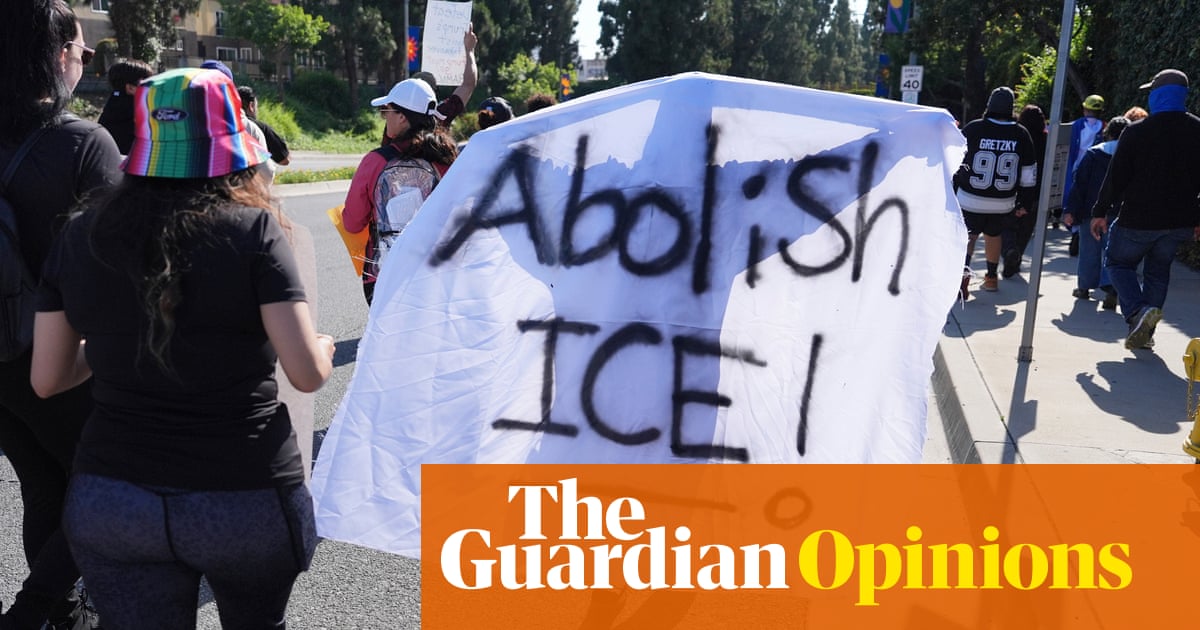
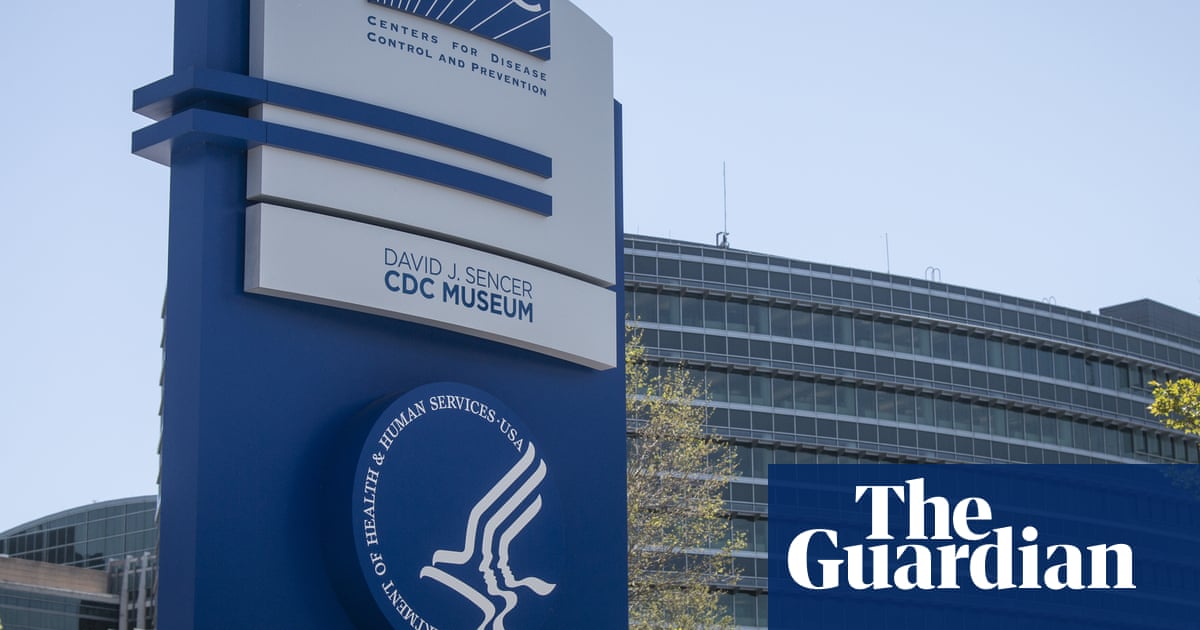


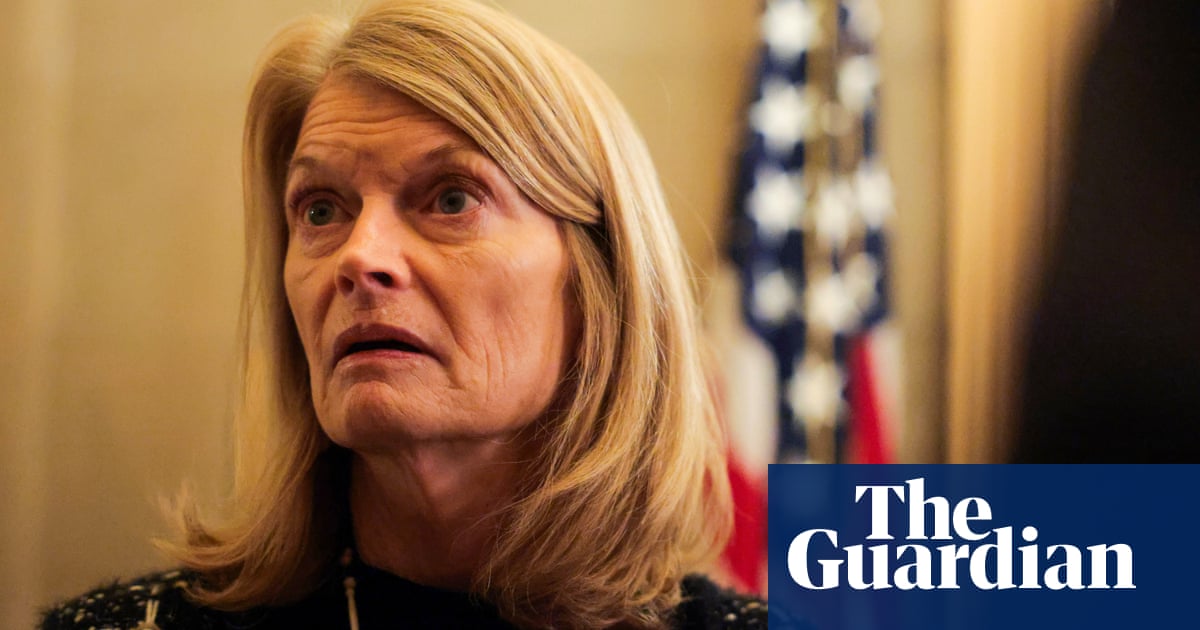


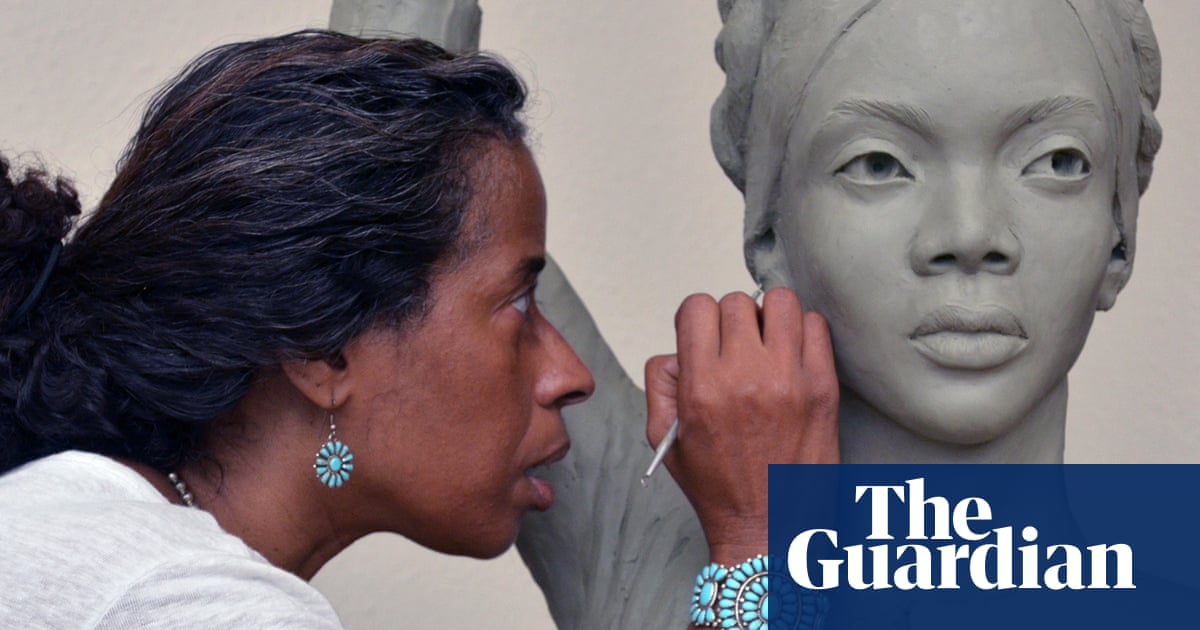





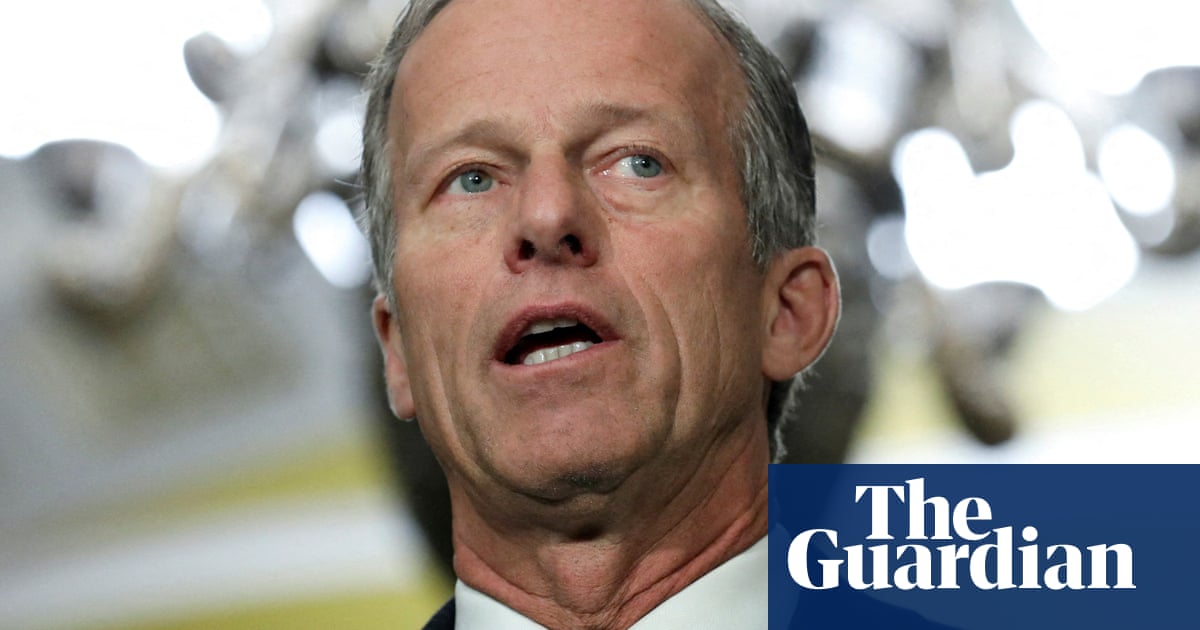










Comments